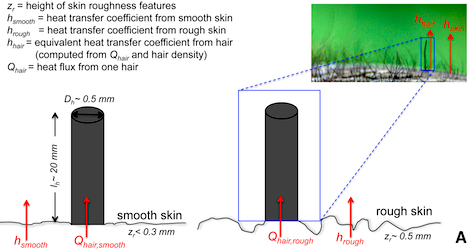Marc Abrahams's Blog, page 539
October 29, 2012
A method for extracting mail
There is much, perhaps, to be learned from this brief 1903 video (from the US Library of Congress) showing postal employees extracting mail from slots:

“The Woman Who Needed to Be Upside-Down”
Behold the curious case of a woman whose defective pacemaker wiring caused her to pass out unless she was being held upside-down. Dr Louis F. Janeira, writing in Discover’s Heath and Medicine blog, reports (though changing “names and certain details”):
I ran to the ambulance bay, rounded a corner, and saw a huge man, seven-foot-something, holding a petite woman, maybe five feet tall, by her feet, her head dangling down. “I have to hold her this way,” the man insisted….
I approached the couple slowly. “I didn’t expect to see you so soon,” I said leaning over, trying to see her face. “Didn’t you have your pacemaker implanted yesterday?”
“Yes,” she said. “I had the surgery yesterday. Everything went well, and I went home this morning.”
“Everything was good until about half an hour ago,” Jason said….
Something must have gone wrong with her operation yesterday, I thought. Then suddenly it hit me. “The pacemaker lead, the wire going from the pacemaker generator to your right ventricle, must have disconnected. Your coughing spell could have done it,” I said. “Somehow, the lead reconnects when you are upside down and continues to stimulate the heart.”

Another Possible Use, to the Elephant, of Elephant Hair
 Elephant hair — the hair found on elephants — poses intricate puzzles for those who are inclined to look closely. This study works at solving one set of those puzzles:
Elephant hair — the hair found on elephants — poses intricate puzzles for those who are inclined to look closely. This study works at solving one set of those puzzles:
“What Is the Use of Elephant Hair?” Conor L. Myhrvold, Howard A. Stone, Elie Bou-Zeid [pictured here], PLoS ONE, 7(10), 2012, e47018. The authors, at Princeton University, explain:
“Elephant hair is the first documented example in nature where increasing heat transfer due to a low hair density covering may be a desirable effect, and therefore raises the possibility of such a covering for similarly sized animals in the past. This elephant example dispels the widely-held assumption that in modern endotherms body hair functions exclusively as an insulator and could therefore be a first step to resolving the prior paradox of why hair was able to evolve in a world much warmer than our own.”
(Thanks to investigator Stephen Wolfram for bringing this to our attention.)

October 28, 2012
Horrors: ‘Art’ in Artificial (Intelligence) Poetry
William Topaz McGonagall who died in 1902, is widely regarded as the writer of the worst poetry in the English language. As an example, see this video featuring Terry Jones (of Monty Python fame) interpreting the poem ‘Stirling Castle’.
McGonagall has now become one of the very few famous poets to have a computer programme named in his/her honour. Artificial Intelligence (AI) researchers from the Faculty of Computer Science, Universitas Indonesia, the Department of Computing Science, University of Aberdeen, and the School of Informatics, University of Edinburgh, have constructed an AI system called ‘McGONAGALL’ which “ … uses a sophisticated linguistic formalism to represent its genomic information, from which can be computed the phenotypic information of both semantic representations and patterns of stress.“
The programme doesn’t create poetry from scratch, as it needs to be ‘fed’ with an input text, but rather, it explores which computations are most effective at creating something close to the original verse. For example, this is the result when primed with a (slightly altered) snippet of Hilaire Belloc’s ‘The Lion‘ :
“The African lion, he dwells in the waste.
He has a big head and a very small waist.”
OUTPUT :
“They play. An expense is a waist.
A lion, he dwells in a dish.
He dwells in a skin.
A sensitive child,
he dwells in a child with a fish.”
The experimenters conclude that in its current form McGONAGALL (the AI system) can either produce reasonably convincing poetic text (but with uncomfortable ‘metre’) – or, nicely metred poems (but with less attractive text). Whereas some say that McGonagall (the poet) couldn’t really manage either. See: Using genetic algorithms to create meaningful poetic text Journal of Experimental & Theoretical Artificial Intelligence, Volume 24, Issue 1, 2012
Many thanks to Professor Ritchie at the University of Aberdeen for his assistance with clarifications for Improbable.

Archiving piano music for left handers
Takeo Tchinai, head of the Archiving Project for Left-Hand Piano Musicoversees a growing corpus* of music for pianist who, for whatever reason, have lost or never had some or all use of their left hand, perhaps because they have lost or never had some or all of their left hand, perhaps because they have dystonia, perhaps because they have philosophic or other objections to their right hand or special, nearly exclusive love of their left hand. In the video here, Tchinai plays Béla Bartók’s “Tanulmany balkezre” [Study for the left hand], which was written, not off-handedly, in 1903:
Tchinai explains:
“The project’s goal is to excavate and revive the scattered and lost pieces of the left hand piano music, through running a self-managed online archive of video and other resources. Its mission is to share with the handicapped musicians a hope to keep playing music as well as joy to seek this esoteric form of piano music, which may lead to opening up the possibility of performance with left hand alone. I hope the video collection of my performances will grow to inspire musicians.”
*A corpus that one day will be complete, perhaps, except for the portions that correspond metaphorically to the right hand.
(Thanks to investigator Sid Rodrigues for bringing this to our attention.)
BONUS QUESTION: Is there a similar archive, of at least equal quality, for right-hand piano music?
BONUS BONUS QUESTION: Is there a similar archive, of at least equal quality, for left-hand guitar music?

October 27, 2012
If it’s gestures you fancy…
If you want to know about gestures, The Manchester Gesture Centre is the place for you. When forced to resort to actual words, the center says:
The Manchester Gesture Centre consists of a group of researchers with different areas of expertise… The Centre’s research projects employ a range of different methodologies, and data derived from different settings, including laboratory based experimental work, naturally occurring conversations and interactions, as well as the study of apes in captivity as well as in their natural habitat.

October 26, 2012
Dracula research resources
If Dracula is your academic passion, consult the Dracula Research Center, and especially the Journal of Dracula Studies.
BONUS (hauntingly related): Testing pumpkin-carving knives on cadaver arms

October mini-AIR: Chocolate, vanilla, and moths
 The October issue of mini-AIR just went out. Topics include:
The October issue of mini-AIR just went out. Topics include:
Moths and chocolate and vanilla
Megaripples
News about the Ig Nobel winners
and more
It also has info about upcoming events (in late Oct, and Nov).
Mel [pictured here] says, “It’s swell.” (mini-AIR is the simplest way to keep informed about Improbable and Ig Nobel news and events. Just add yourself to the mini-AIR list, and mini-AIR will be emailed to you every month)

October 25, 2012
The Sexy-Valuable Research of Kristina and Vladas
Behold the joint publications of Kristina Durante [Assistant Professor, Department of Marketing, University of Texas at San Antonio] and Vladas Griskevicius [Associate Professor, Marketing and Logistics, Carlson School of Management, University of Minnesota]:
For background on some of their latest adventures, see (listed here more or less in the order in which they appeared):
Retraction Watch’s report called “Psychological Science in the news again: CNN retracts story on hormone-voting link.”
Kate Clancy’s report “Hot for Obama, But Only When This Smug Married Is Not Ovulating“
SciCurious’s report “Friday Weird Science: Estrogen for President!“

Word of the day ‘Re-McDonaldization’
Preamble : An Improbable attempt at an etymological background:
• McDonaldization : (noun) The process by which a society (or part thereof) takes on some of the characteristics of a fast-food restaurant.
• De-McDonaldization : (noun) The process by which a society (or part thereof) reverts back from displaying some of the characteristics of a fast-food restaurant; and is restored to its original state.
• Re-McDonaldization : (noun) The process by which a society (or part thereof) returns from a state of de-McDonaldization, (having been previously at some stage McDonaldized) and again exhibits some of the characteristics of a fast-food restaurant.
For an example academic paper which references all three, see : Tracking Prosumption on eBay: Desire, Enchantment, and the Challenge of Slow Re-McDonaldization in American Behavioral Scientist, April 2012 vol. 56 no. 4 439-458
Note: The photo shows Professor George Ritzer, of the University of Maryland, who coined the term McDonaldization in 1993.

Marc Abrahams's Blog
- Marc Abrahams's profile
- 14 followers





























